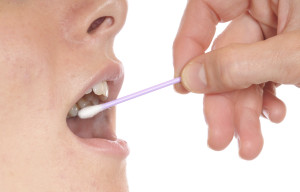STDs and Oral Health
By Caroline Jacobson
Sexually transmitted diseases (STDs) are a growing problem.

More than 20 million new cases of STDs occur in the U.S. annually and more than half of them are in people younger than 24, according to the Centers for Disease Control and Prevention (CDC). STDs also can wreak havoc with patients’ oral health.
Human Papilloma Virus (HPV) is the most common STD and can occur in anyone who is sexually active. Usually, HPV clears up without treatment, but it can cause cervical cancer and other cancers, such as oropharyngeal cancer (cancer of the back of the throat). You can prevent HPV by getting a vaccination or using latex condoms during sex.
Herpes, also known as HSV1, isn’t just a disease for adults. In fact, the virus is usually spread in infancy or early childhood by sharing utensils or kissing. The herpes virus remains in the body for a lifetime – with periodic outbreaks. These outbreaks often take the form of cold sores, blisters that appear on the lips, gums or mouth. These can be triggered by:
- Illness or fever.
- Sunburn, skin abrasions or other trauma.
- Certain medications, like corticosteroids, that can weaken the immune system.
- Stress.
- These cold sores usually heal within a week of outbreak. To help prevent an outbreak, change your toothbrush every three months, especially if the bristles are frayed. The virus has been found on toothbrush bristles and handles.
People with HIV, the virus that causes AIDS, commonly experience oral health problems due to their weakened immune system and the medication they take to treat the disease.
Common problems include: - Red sores on or in the mouth or on the lips (called fever blisters).
- Thrush or yeast infections, which appear as yellow or white patches that cause a burning feeling in the mouth.
- Warts, which are white or gray bumps on the lips or in the mouth.
- Medications to treat HIV can cause dry mouth, a lack of saliva. Without saliva, bacteria can grow and spread causing gum and tooth disease.
If you’re concerned about your oral health or want to identify a suspicious lesion in your mouth, call your dentist right away.

